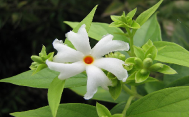Clinical Research
The clinical research programme of the Council mainly aims at validation the therapeutic efficacy of Siddha medicines and therapies, used in more than 10 decades.
The council also concentrates in innovation of newer drugs for non-communicable diseases especially Diabetes Mellitus, Psoriasis, Vitiligo, Hypertension, Dyslipidemia, Urolithiasis, Fibroid Uterus, Osteoarthritis, Rheumatoid arthritis and in Benign Prostratic hypertrophy.
Some of the clinical trials conducted earlier and their outcome are listed below:
Peptic Ulcer
The disease Valigunmam was considered as one of the Karma Diseases by Saint Agasthiyar (Ref. KanmaSoothiram 300). The disease has been dealt in detail by ancient Siddhars like Bogar & Yugimuni. The clinical signs and symptoms of Valigunmam simulate peptic ulcer.
The drug chosen for trial is Thambira Chendooram (P6) mentioned as Gunma Kalan-meaning destroyer of Gunmam (Peptic Ulcer). Out of 1011 participants in the clinical trial 763(75%) showed good response to the single blind open
clinical trial.
The drug is chemically analyzed, pharmacologically tested for its various activities such as analgesic/antipyretic/anti-inflammatory and histopathological studies confirmed as a non-toxic drug through acute, sub-acute and chronic toxicity studies.
The drug is administered at a dose of 45 mg with honey twice daily for 21 days.
The FTM is repeated after the course of treatment and barium series is repeated on the 90th day. The drug was found very effective in treating peptic ulcer. The drug P6 showed anti-acid and anti-ulcer activity.
Outcome: Monograph on Valigunmam published.
Cancer
Clinical trial on the dreadful disease cancer with coded drugs like RGX, SKX and VK2 has been tried in the single blind open clinical trial and the study outcome showed reduction in pain, growth, size of malignant ulcers. There was also a reduction in the foul smelling discharge and bleeding in cases of cervical cancer. There was a noticeable increase in the body weight in stage I and stage II of cancer. There was a decrease in the serum mucoid level and overall wellbeing of the patients was noted.
Outcome: Publications are done in JRAS Journals.
Rheumatoid arthritis
Clinical trial was conducted in SCRI, Chennai on the crippling joint disease rheumatoid arthritis with 6 groups of drugs. Among them the drug group a combination of Linga chenduram and Gowri chinthamani responded well. Good response is seen among 44% of the total 199 patients recruited. 30% had a fair response.
Outcome: Published in Rheumatism Vol.17 No.2
Infective Hepatitis (Manjal Kamalai):
Under this trial conducted in SCRI, Chennai, the various herbs mentioned as liver tones in ancient siddha literature are evaluated for their efficacy on infective hepatitis. The conventional methods were taken as the parameters for confirmation and assessment. In cases of obstructive nature where surgical correction is required, they were referred to nearby hospital and dropped out from our trial. The fresh herbs under trial are given at a dose of 5gm in the form of Kalkam twice daily.
Among the 10 groups tried encouraging results were obtained from the group having Kovai Elai (Coccinia grandis) Kalkam where 57% of the patients showed very good response.
Outcome: Published in the proceedings of International Conference in Traditional Medicine, Chennai.
Psoriasis
The trial on psoriasis conducted in SCRI, Chennai, with 777 oil gained much reputation for Siddha as the only remedy for psoriasis is still found with the above said trial drug. Among the 3542 cases prospectively continued in the trial 1609 had a good response and 1200 patient showed fair response.
PASI (Psoriasis Assessment and severity Index) is the measurable index. Remission and relapse time intervals extended. The symptoms recorded in the recurrence is very mild comparing the
onset.
Outcome: The drug has been patented through NRDC in the year 1987. A monograph has been published.
Multicentric studies on anemia with Annabedhi chenduram
A multicentric study to check the efficacy of the trial drug Annabedhi chenduram in anemia was conducted in SCRI, Chennai, SRRI-Pudhucherry, and SCRU-Palayamkottai. It was found that Annabedhi chenduram was better in increasing Hb, Serum iron, Serum ferritin and TIBC.
Around 359 cases were screened among which 40 cases were recruited and the trial completed. 75% of the cases showed good response and their general conditions improved.
Outcome: Treatment guidelines for veluppu noi published by CCRAS.
Open observational studies on metallic drugs
Observational studies were conducted in SCRI, Chennai, to evaluate the clinical safety of selected three siddha herbomineral preparations such as Ayabringaraja karpam, Ayaveera chenduram and Linga chenduram. 15 subjects were recruited for this trial and they were observed for the metallic load in their body. LFT, KFT, USG are the parameters observed in this study. NOAEL was the observation in this
study.
Documentation of Treatment Guidelines in vector borne diseases
This documentation project is highly useful in collecting various treatment claims on vector borne diseases used for treatment and prevention. Among the 38 claims more than 60% reported for Chikunguniya. Nilavembu kudineer and bramanandha bhairavam tablet are frequently documented claim. It is noteworthy
to mention here that mass treatment with Nilavembu kudineer is adopted in southern states especially in Tamil Nadu whenever there is a reported outbreak of either Chikunguniya or dengue.
Outcome: Monograph published by CCRAS - Treatment guidelines for Chikunguniya.
Vitiligo


.png)
.png)
.png)
.png)
.png)
.png)